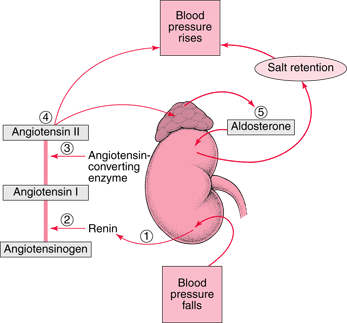While the primary function of our excretory system is the elimination of waste, there is another important factor it must consider. This is the balance of fluids and electrolytes in our bodies. Our bodies must maintain a healthy internal environment, and the regulation of excretion plays a big part in that.
Suggested Videos
What Regulates Excretion?
Excretion is the process by which living organisms eliminate waste from their body. In humans, the excretory system controls the elimination of waste. And at the same time, it also controls the water and electrolyte level in the body.
In a way, the excretory system plays a role in excretion and homeostasis. It primarily consists of the kidneys, two ureters, the urinary bladder, and urethra. Regulation of excretion in humans is both chemical and hormonal.
Browse more Topics under Excretory Products
- Introduction to Excretory System
- Human Excretory System
- Urine Formation
- Micturation
- Role of the Other Organs in Excretion
- Disorders of the Excretory System
Chemical Regulation
The kidneys are highly sensitive to increase and decrease of the pH levels in the body. In case of lowered pH where the environment tends towards acidosis, the kidneys work to balance it out by reabsorbing alkaline sodium bicarbonate from the urine. The reverse occurs when there is an increase in the blood pH in which case the kidneys eliminate sodium bicarbonate to neutralize the pH to 7.
When there is an increase in the blood sugar levels, the pancreas secretes insulin to increase the glucose metabolism. In these cases, the kidneys tend to eliminate sugar instead of reabsorbing it.
At times when the osmotic level of the blood and plasma makes them more concentrated due to reduced water content, the kidneys reabsorb more water which leads to reduced urine output. With an increase in the water intake, the kidneys eliminate more water to balance out the osmotic levels in the body.
Hormonal Regulation
The kidneys are not sensitive to just chemical composition and osmolarity of blood and plasma, but, are also influenced by hormones. The most important hormone that directly regulates kidney function is the Anti-diuretic Hormone(ADH). Apart from ADH, the parathormone also influences excretion.
When the water levels in the body fall below a certain level, the receptors known as osmoreceptors present throughout the body are activated. Osmoreceptors are a type of receptors that detect a change in the osmotic pressure of the blood and plasma.
Once these osmoreceptors are activated, they send impulses to the posterior lobe of the pituitary gland to stimulate secretion of ADH. ADH stimulates the kidneys to reabsorb water from the urine to restore the water levels in the body.

(Image Source: thinglink.com)
A similar mechanism is seen when the blood pressure falls. When there is a fall in blood pressure, the amount of blood passing through the glomeruli is less and so there is less filtration rate. Due to this, a type of cells known as juxtaglomerular cells present around the glomerulus, are activated and they release an enzyme called renin.
Renin in the blood converts angiotensinogen to angiotensin I, which is eventually converted to angiotensin II. Angiotensin II acts on the blood vessels and capillaries to cause their constriction thereby increasing the blood pressure. The angiotensin II also stimulates the adrenal cortex to release aldosterone which has an effect on sodium levels in the blood.
Aldosterone is primarily responsible for reabsorption of sodium from the urine. Reabsorption of sodium leads to increase in water reabsorption as well. Both these together help to restore the blood pressure. This entire mechanism where the hormones are acting towards restoring the blood pressure is known as the Renin- Angiotensin- Aldosterone mechanism or RAAS mechanism.
Solved Example for You
Q: Which of the following hormones do not affect regulation of excretion?
(a) Testosterone (b) Aldosterone
(c) Parathormone (d) ADH or antidiuretic hormone
Sol. (a) Testosterone
Testosterone is a sex hormone that is responsible for secondary sexual characters in males and development of sperms.






Nice platform for acquisition of knowledge and wisdom. I am very proud to introduce this particular platform to my friends
the information is okay but the language used is a problem
Daddy is gay
so nice method of teaching.Stay blessed